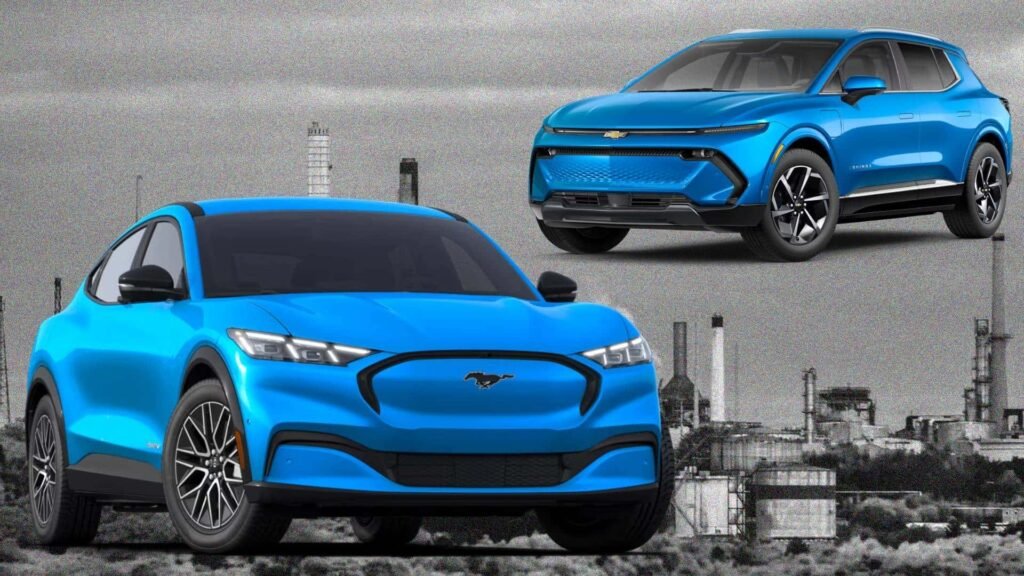The Global Shift Toward Electric Vehicles Continues Unabated
Electric vehicles (EVs) are playing a pivotal role in reshaping the global energy landscape. They are already displacing millions of barrels of oil per day, contributing significantly to reducing carbon dioxide emissions. This trend is expected to accelerate over the next decade, marking a major shift away from fossil fuels.
Despite recent developments in the U.S., which have introduced challenges for the EV sector, the global movement toward clean energy remains strong. The passage of a controversial bill in both the House and the Senate has raised concerns among environmentalists and climate scientists. This legislation ends federal tax credits for clean energy programs like solar and wind, while also providing tax breaks for oil and gas companies. Additionally, it allows for increased methane emissions, effectively rolling back key environmental protections.
However, even with these setbacks, the momentum for electric vehicles is not slowing down. According to research from BloombergNEF’s Electric Vehicle Outlook 2025, EVs are still expected to displace millions of barrels of crude oil annually. While the U.S. slowdown might result in fewer EV sales globally by 2030, the broader transition to cleaner energy will continue across the world.
The future of the oil and gas industry appears increasingly uncertain. Even though the recent legislative changes offer short-term benefits to fossil fuel companies, long-term trends suggest a significant decline in oil consumption. EV sales are projected to grow as new and more advanced models become available, further driving the shift away from traditional fuels.
The Impact of EV Adoption on Oil Demand
The impact of EV adoption on oil demand has been substantial. In 2018, the first million daily barrels of road fuel displacement occurred due to early EV adoption. As more consumers switched to electric vehicles, they began to reduce their reliance on gasoline, leading to a loss of regular customers for petroleum companies. Studies indicate that most car buyers who switch to EVs do not return to gas-powered vehicles.
By 2024, the world had displaced two million barrels of road fuel per day. For reference, this amount is nearly equivalent to the total daily oil consumption of South Korea. Looking ahead, EVs are expected to displace more than five million barrels of road fuel per day by the end of the decade.
In 2023, the U.S. consumed around 20 million barrels of oil daily. Had clean energy policies remained intact, this number might have decreased more rapidly. However, with Europe and China continuing to lead in EV adoption, the U.S. is now at risk of falling behind in the global transition to sustainable transportation.
Big Oil’s Transition to Clean Energy
The growing influence of electric vehicles has prompted major oil companies to rethink their strategies. Leading oil producers are making significant investments in clean energy initiatives, including EV charging infrastructure and lithium mining. These moves reflect a broader recognition of the changing energy landscape.
Chevron, for instance, acquired 125,000 hectares of land in Texas and Arkansas for lithium extraction. BP is actively purchasing charging hardware from Tesla and Alpitronic, while Shell Recharge, the oil company’s charging division, is investing in charging stations worldwide. In 2023, Shell opened its largest charging station in Shenzhen, featuring 258 fast-charging stalls at a single location.
These developments highlight the global momentum toward electric vehicles and other forms of clean energy. While the U.S. may experience a temporary setback, the long-term trajectory of the fossil fuel industry remains uncertain. The shift toward electric mobility is gaining traction, and the global community continues to move forward with renewed determination.
The Future of Transportation
As the world moves toward a more sustainable future, the role of electric vehicles will only become more significant. Despite challenges in certain regions, the overall trend is clear: the demand for oil is declining, and the adoption of electric vehicles is accelerating.
The transition to clean energy is not just a matter of policy or technology—it is a fundamental shift in how societies approach transportation and energy consumption. With continued innovation and investment, the future of mobility looks increasingly electric. The path forward may be complex, but the direction is unmistakable.

